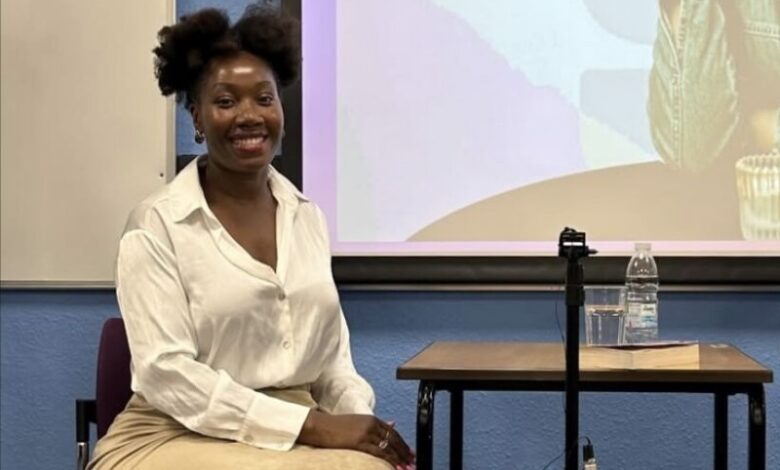Jahnine Davis: Championing Child Safeguarding and Combating Adultification Bias in the UK

Jahnine Davis is a formidable figure in the realm of child safeguarding and social justice in the United Kingdom. Renowned as a leading expert on adultification bias, a National Kinship Care Ambassador, and an influential voice on the Child Safeguarding Practice Review Panel, her work profoundly impacts the protection and wellbeing of vulnerable children—especially Black children—across the nation. Through her research, advocacy, and leadership roles, Davis is driving critical conversations and reforms within child protection systems, education, and community engagement. This article delves into her career, key initiatives, and the vital roles she holds in advancing safeguarding practices in the UK.
Understanding Jahnine Davis and Her Expertise
Jahnine Davis’s expertise lies in recognising and combating adultification bias—an insidious form of racial bias where Black children are perceived as older and less innocent than their peers. This bias significantly affects safeguarding decisions, often resulting in inadequate protection for Black children who are unfairly judged and criminalised rather than supported. Davis’s PhD research at Kingston University, titled Who’s Protecting Us? Safeguarding Black Children, focuses on this issue and sheds light on the systemic challenges faced by Black children within social care and child protection systems.
Her academic journey is deeply intertwined with practical experience, combining rigorous research with hands-on work in child safeguarding. This fusion enables her to approach safeguarding not only from a theoretical perspective but also through actionable insights to transform policies and practices.
Role at the Department for Education: National Kinship Care Ambassador
Since September 2024, Jahnine Davis has served as the National Kinship Care Ambassador for the UK’s Department for Education. Kinship care involves children being cared for by family members or close friends rather than foster or residential care. It is widely recognised as beneficial for children’s stability and wellbeing, but kinship carers often face unique challenges, including limited access to support and resources.
As the National Kinship Care Ambassador, Davis advocates for better recognition and support for kinship carers and the children they look after. She works collaboratively with local authorities, policymakers, and kinship care organisations to improve policies, ensure adequate training, and raise awareness about the importance of kinship care. Her efforts aim to create an environment where kinship carers receive the help they need to provide safe and nurturing homes for vulnerable children.
Contributions to the Child Safeguarding Practice Review Panel
Jahnine Davis has been a dedicated panel member of the Child Safeguarding Practice Review Panel since November 2021. This panel plays a pivotal role in examining serious incidents involving children to understand what went wrong and how safeguarding systems can be improved.
Davis’s contributions on the panel are marked by her focus on racial equity and her insistence on addressing adultification bias as a core issue within child protection. She has been instrumental in the panel’s efforts to highlight how racial bias and systemic racism undermine safeguarding outcomes, particularly for Black children and other marginalised groups. Her advocacy ensures that reviews incorporate a culturally sensitive and anti-racist lens, driving forward reforms that acknowledge and rectify these deep-rooted problems.
Leadership at Listen Up: Amplifying Marginalised Voices
In March 2020, Jahnine Davis co-founded and became Director of Listen Up, a Community Interest Company dedicated to amplifying the voices of children and young people who are often unheard in safeguarding systems. Listen Up provides a platform for marginalised young people, particularly Black children and those from kinship care backgrounds, to share their experiences and influence policy changes.
Under Davis’s leadership, Listen Up has conducted important research and community engagement projects that shed light on the realities faced by vulnerable children. The organisation works closely with practitioners, policymakers, and communities to foster safeguarding approaches that are inclusive, culturally aware, and child-centred.
Independent Safeguarding Lead for BBC’s Tim Westwood Review
Jahnine Davis served as the Independent Safeguarding Lead for the BBC’s review into allegations against former radio DJ Tim Westwood, a role she fulfilled on behalf of Blackstone Chambers from November 2022 to November 2024. This high-profile safeguarding review required rigorous oversight and expert understanding of safeguarding frameworks, victim-centred approaches, and sensitivity to the complexities of abuse allegations within the media industry.
Her leadership ensured that the review maintained integrity, fairness, and thoroughness, contributing to the broader conversation about safeguarding standards within public institutions. It also highlighted the importance of safeguarding expertise that understands the nuances of race and adultification bias.
Trustee Role at Save the Children UK
From October 2020 to October 2022, Jahnine Davis served as a Safeguarding Trustee at Save the Children UK, one of the most prominent children’s charities globally. In this role, she was responsible for overseeing safeguarding policies and practices within the organisation, ensuring they upheld the highest standards of child protection.
Her input was crucial in embedding a strong safeguarding culture, particularly emphasising anti-racist practices and awareness of adultification bias within Save the Children’s UK programmes. This role further expanded her influence in safeguarding beyond statutory services into the charitable sector.
Education and Early Career
Jahnine Davis holds a Doctor of Philosophy (PhD) from Kingston University, where her thesis investigated safeguarding Black children with an emphasis on systemic biases that affect child protection outcomes. Prior to this, she earned a Master of Arts in Woman and Child Abuse from London Metropolitan University.
Her career trajectory spans numerous roles in child safeguarding, including positions with Barnardo’s, the Centre of Expertise on Child Sexual Abuse, and various consultancy and leadership roles in organisations focused on child welfare, race equality, and education. Through these roles, Davis has cultivated a profound understanding of the intersectionality between race, safeguarding, and social care.
Education and Safeguarding: A Foundation for Change
Education has been a cornerstone in Jahnine Davis’s approach to child safeguarding. By focusing on training, awareness raising, and community engagement, she has helped to transform how practitioners perceive and respond to children’s needs, especially those of Black children affected by adultification bias.
Her work stresses the importance of culturally competent training for social workers, educators, and safeguarding professionals. This training aims to dismantle harmful stereotypes and promote empathetic, informed approaches to child protection.
Tackling Adultification Bias: The Core of Jahnine Davis’s Work
Adultification bias manifests when Black children are unfairly seen as more mature, less vulnerable, and more culpable than their white counterparts. This bias can lead to harmful consequences such as harsher disciplinary measures in schools, inadequate child protection responses, and wrongful criminalisation.
Jahnine Davis’s research and advocacy shine a spotlight on this issue, challenging institutions to recognise and address the bias within their safeguarding frameworks. By doing so, she contributes to creating a fairer, more just system that acknowledges the unique vulnerabilities of Black children and seeks to protect their rights and wellbeing effectively.
Impact and Legacy
Through her multi-faceted roles, Jahnine Davis continues to shape UK safeguarding policies and practices. Her work has catalysed national discussions on race, bias, and child protection, influencing reforms and encouraging organisations to adopt anti-racist safeguarding approaches.
The establishment of scholarships and training programmes inspired by her research further cements her legacy in nurturing future safeguarding professionals committed to equity and justice.
Conclusion
Jahnine Davis is a vital voice in the UK’s safeguarding landscape, advocating tirelessly for the protection of Black children and challenging systemic injustices such as adultification bias. Through her leadership roles at the Department for Education, the Child Safeguarding Practice Review Panel, Listen Up, and other organisations, she continues to advance safeguarding reforms that are inclusive, equitable, and grounded in lived experiences.
Her dedication to education, research, and community empowerment underscores the critical need for culturally competent safeguarding practices that uphold the rights and dignity of all children. As the UK strives for a fairer child protection system, Jahnine Davis’s work remains at the forefront of this transformative journey.



